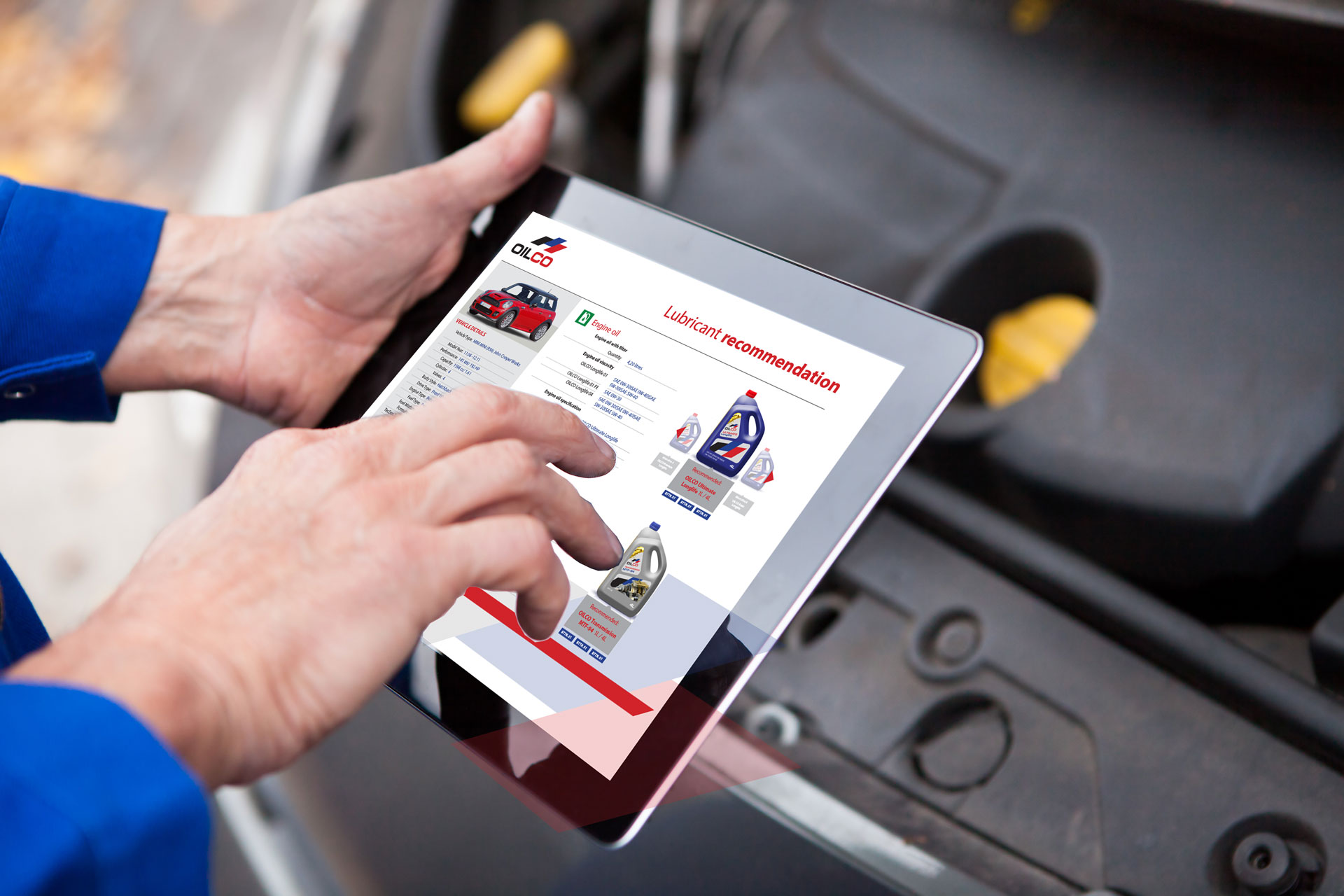
OATS MD, Mike Skypala examines the history and possible future of oil selector applications.
When OATS was founded in 1984, the internet was in its infancy. There was certainly no suggestion of the cloud-based applications that could offer an almost instantaneous answer to the consumer question: “what oil should I use for my car?”
Lubes specification data, 35 years ago, was available to workshops and retail outlets in a relatively simple format: a paper-based catalogue. With the arrival of the Internet came the opportunity to develop online database interrogation tools. Oil selectors offered the functionality of matching lube specifications to automobiles and using the technology to leverage the information for consumers.
In early iterations, an online lubes search required consumers to enter their vehicle make, model, year, engine size, etc using drop-down search boxes. More often than not, going to a retailer and searching the catalogue was a quicker process.
Wasted wealth?
Today, consumers don't face a long search process thanks to smart search/VRM technology which has streamlined the process significantly. Yet, even with that functionality at its fastest, the end result still only provides the consumer with basic information about one, or possibly two-three matching products and possibly a pack shot
Yet, there is a wealth of additional technical information, product details and comparisons that could be offered to consumers by lubricants producers, distributors or retailers. Learning from a host of other e-commerce retailers (Amazon being the most obvious), lubes retailers could dramatically enhance the customer experience. For example, including how to use the product; peer reviews or recommendations; highlighting complementary products or alternatives bought by other visitors to the website.
In general, selector sites usually have three-to-five core products available but few, if any, supporting products or accessible technical information. The result? A website visit rarely leads to an actual purchase. Consumers are provided with a recommendation but no direct call to action or links to online purchase locations. Occasionally a distributor list is offered, but it's still relatively rare.
Getting the message across
The larger lubes producers are starting to understand the potential and it’s changing both their marketing approach and their interaction with data providers such as OATS. Where previously a selector search meant an automatic click-through to a standalone site housing the data, selectors are now being integrated into producers’ or distributors’ own websites using a data feed.
The result is a much more commercially orientated, integrated solution. It allows brand-specific information to support the recommendation. So far, few companies have exploited these opportunities to the level of the online consumer goods retailers and there is certainly more to be done around the customer/consumer experience. For the consumer (motorist) sector, enhancing this experience is critical to match expectations of other retail experiences that have become the norm for most online purchases.
For the customer (B2B) sector, more of the detailed, technical information is usually provided. This is for two reasons. The user interface does not need to be so fast, nor does it need to be commercial. In essence, there is a divergence on the presentation of information between customer and consumer. B2B customers will already have an established supply chain and/or the information is already integrated into their distributor’s commercial website, so there is a natural link to purchase.
Where next for selectors?
Without question, the role of the lubes selector is set to change dramatically as the industry moves towards mono-grade viscosities and EV/alternative power vehicles. This means facing some challenging questions. With less DIY consumers, what will be the purpose of an oil selector? If less fluid is being put in new cars, and if selection becomes simpler because of single specification OEM recommendation, who will target market be? Who will need more technical information and what will they want to get from it? If selection is simple, will onboard diagnostics and the Internet of Things automatically deliver lubes to home or workshop for a required top-up, removing the need for a selector altogether?
In my opinion, the role of selector technology will be caught up in this evolution, but will require a change in mindset for both lubes producers and customers/consumers. The basic “what oil?” product information will remain relevant, particularly for older models, for at least the next decade. However, selectors can and should be used to create a more symbiotic relationship. Big data analysis can offer lubes developers insight into customer/consumer understanding and demand for specific oil types, while also indicating the oil co’s success (or otherwise) in developing and marketing OEM and model-specific products.
While GDPR usually demands individual anonymity for generic online enquiries, broader data trends will certainly be sufficient to allow lubes marketers to develop oil selectors as an education tool. This is not only to help consumers understand the importance of fluid choice for vehicle performance, but also emphasise the wider environmental benefits of modern oils – a topic moving to the top of the consumer agenda. This, in turn, creates a stronger justification for advertising selectors on point-of-sale materials and product packs.
Ironically, for B2B customers the selector is likely to come full circle with a return to a more catalogue-based data interface. The focus will be on workshops/retailers/distributors interrogating the data in order to provide the best consumer experience. This is the type of information HaynesPro workshop content can support.
Along with the oil majors and OEMs, data providers will have to alter their business models and perspectives as markets and challenges change. In the case of OATS, its direct relationship with Haynes Pro offers its customers an understanding of how lubricants fits alongside the whole workshop/servicing process. The insight from this combined data may, ultimately, prove essential to lubes developers and marketers and OEMs, as well as aftermarket suppliers.